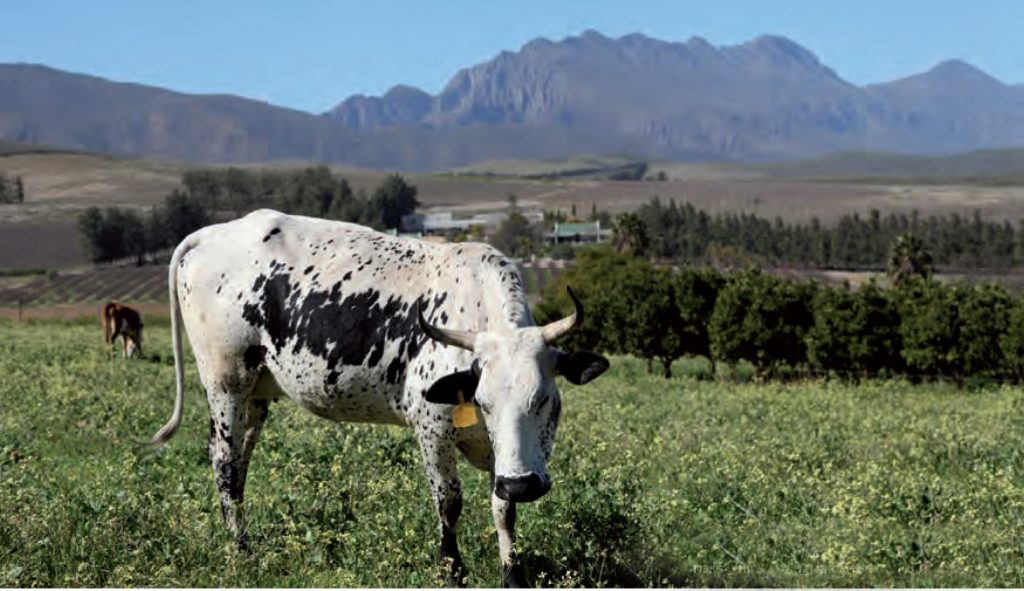Sunday Times Green
Preparing For The Future
The agricultural industry is adapting faster to changing climatic conditions than most other industries, perhaps because of farmers’ close dependence on the elements and natural resources.
Over the past five years, the use of nets, for example, has rapidly expanded in most provinces as farmers try to protect orchards and vineyards against hail, sunburn and wind damage. Water use efficiency has also improved on many farms, thanks to improved technologies resulting in better irrigation scheduling and water delivery.
Emerging technologies are helping too. FruitLook, a Western Cape Department of Agriculture-sponsored online service that uses remote sensing to alert farmers of stress in vineyards and orchards, has reportedly increased users’ irrigation efficiency by 10 to 30 per cent since its launch around 2011.
Meanwhile, an increasing number of grain farmers are also using conservation farming practices, such as minimum-to-no-tillage, crop rotation and stubble retention to reduce water evaporation and improve soil health, with the emergence of precision farming technologies bringing even greater efficiencies to the system.
Conservation farming has since been taken to a new level with regenerative agriculture – where the aim is no longer to merely maintain the soil, but also to restore and create a healthy farming system.
Regrowth and repair
Danie Slabbert, a Free State farmer who has been practising conservation farming for more than a decade and regenerative farming for the past four years, says these systems have significantly reduced his fuel usage due to reduced tillage and spray applications and cut down fertiliser and pesticide costs. Regenerative farming more so than conservation farming.
He says that regenerative farming is nevertheless extremely complex because the soil and environment are dynamic: “There is no recipe or quick fix. Farmers have to continuously adapt their farming practices as the system changes.”
Industry and government are also doing their share in improving the resilience of the sector. In 2008, the South African fruit and wine industries, with the support of the Western Cape Department of Agriculture (WCDoA), became the first to develop a tool that allows farmers and agribusinesses to measure and identify ways to reduce their carbon emissions.
The initiative, called Confronting Climate Change (CCC), currently has over a 1 000 registered users, ranging from fruit and wine farmers, berry and vegetable producers to cellars and packhouses.
In 2016, the Western Cape became the first province to release a sector plan aimed at fostering climate resilience in the agricultural sector.
The SmartAgri plan was developed by the WCDoA in collaboration with the Department of Environmental Affairs and Development Planning to promote climate-resilient low-carbon production, strengthen climate disaster risk management, lead strategic research and ensure good co-operative governance and institutional planning for effective climate change response planning.
The Western Cape has been pioneering resource-smart agricultural for many years now. Dr Ilse Trautmann, chief director research and technology development and project leader of SmartAgri, says their work on conservation agriculture started 23 years ago with long-term crop rotation trails on grain, which has since expanded to their potato research and pastures for milk production research.
Trautmann advises other industries to work with climate change, not against it: “Get to know your resources and implement methods and practices to be more resource-smart.”






 Sign-up and receive the Business Media MAGS newsletter OR SA Mining newsletter straight to your inbox.
Sign-up and receive the Business Media MAGS newsletter OR SA Mining newsletter straight to your inbox.